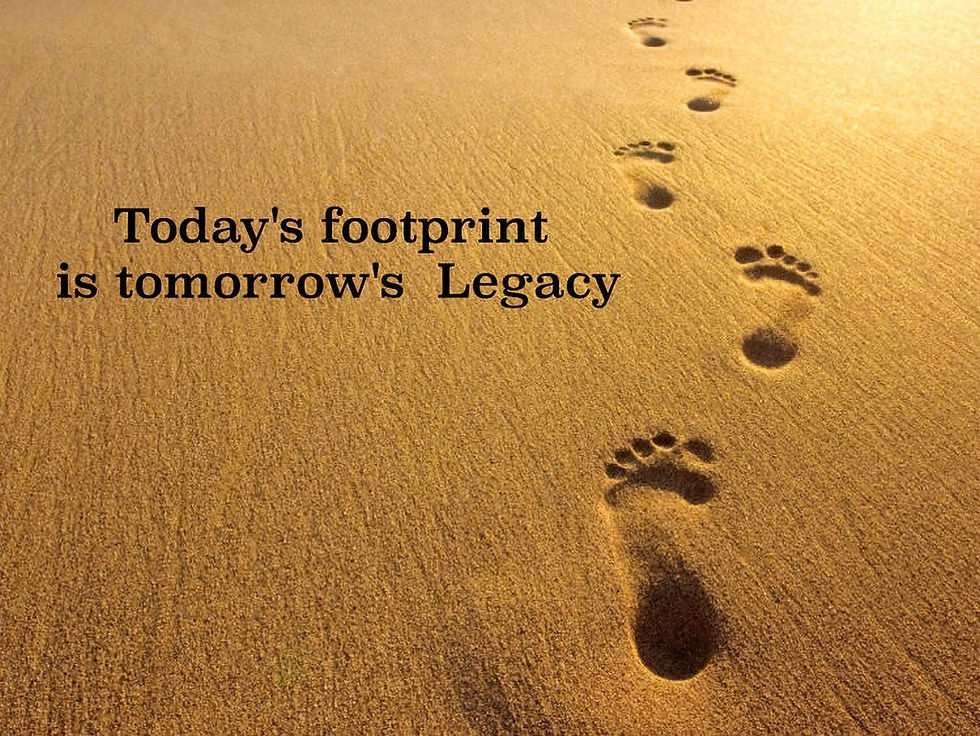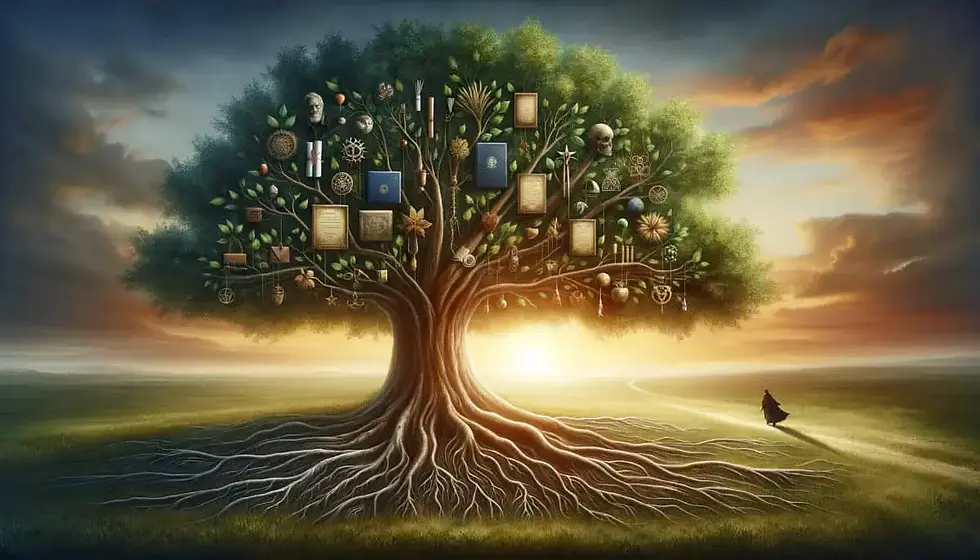Inherited Legacy: Understanding the Weight of Family Expectations
- Gabriel Solomon

- Sep 20, 2025
- 4 min read

The Power of Parental Influence
The strength of children lies in the power of parental reasoning. Our dreams and aspirations often measure our desire for a prestigious social status. Many of us struggle with an unhealthy addiction to acquiring wealth by any means necessary. The pursuit of academic degrees can sometimes stem from a desire to boost an inflated ego.
Parents across all ethnicities and social classes place high expectations on their children. They strive to raise future titans of industry, political giants, and household names. But how often do we hear stories of heirs squandering inherited wealth?
These pressures often come from a long-standing belief that free will is secondary to strategic planning meant for heirs before they are even conceived. Society expects individuals to enrich their lives with inherited family values and maintain lifelong memberships in exclusive social circles.
The Hidden Cost of Legacy
In my book “Let It Make Sense—My Truth, My Journey” on Amazon, I explore the extreme pressure placed on the offspring of elites. This pressure can lead to tragic outcomes, such as addiction, mental illness, or a desire to escape societal expectations altogether.
Many of us have participated in intimate conversations about the burden of family legacies. Whether it’s the pressure to uphold an ancestral dynasty or the expectation to continue economic and social channels, the weight of family history can be heavy.
Our actions are often driven out of duty rather than love. Each generation grapples with its own family curses and blessings. In creating a legacy, we must confront the hidden backstories that often remain secret within the family circle.
Wealth and resources hold value for both the affluent and impoverished, but at what cost do we sacrifice our souls for earthly possessions?
The Struggle for Identity
Children often hold their parents in high regard, as caregivers provide for their basic needs. However, this admiration can blind them to the darker truths lurking in their family's history.
Those living inside gated communities may face different challenges than those dwelling in poverty. Both groups find that their caregivers hold significant sway over their future, often without recognizing the mental and spiritual hurdles ahead.
Maturity cannot be handed out like a diploma; it is a hard-won victory that comes through experience. Children learn to be either pillars of their communities or subservient workers in a complex society.
The Measure of a Legacy
An individual's legacy can be judged on either righteous or unrighteous scales. Those who control these measurements often impose their values and expectations on their descendants. Whether it is financial success, education, or moral guidance, the scales may tip in favor of some heirs while leaving others behind.
Chokmah (Wisdom) is a valuable asset, afforded to both the poor and the rich. But who will cherish it the most?
A person lacking reasoning may feel burdened by the desire to acquire everything, while another equipped with moral and spiritual guidance navigates life with ease. This idea is illuminated in Qorintiym Ri'shon (1 Corinthians) 13:11, which underscores a transition from childhood innocence to adult responsibilities.
The Burden of Inherited Expectations

The inherited legacy demands either an uplifting challenge or a debilitating burden on individuals. Many find themselves entrenched in a cycle, echoing the themes presented in films like The Godfather.
The story revolves around family ties and obligations, absent the burdens we carry in our own lives. Michael Corleone is thrust into a world he did not choose, akin to many individuals who inherit family expectations.
What’s essential here is to ask ourselves: Did our caregivers equip us with the support and stability necessary for adulthood?
Reflecting on Our Own Experiences
I reflect on my own upbringing, where my grandparents attempted to provide a solid foundation amidst chaos. The struggles within my family stemmed from the violence my mother endured. Although my grandparents built a respectable legacy, the chaos often threatened to unravel their hard work.
Vito Corleone, from The Godfather, represents so many parents today who struggle to prioritize what truly matters—faith and moral principles. Often, parents opt for financial security over spiritual clarity, creating a lineage filled with unresolved issues and poor choices.
A legacy should not only encompass material wealth but also spiritual and moral richness. In Luqas (Luke) 11:11-13, the message emphasizes the significance of providing good gifts to our children, highlighting a divine responsibility to nurture their souls.
The Cycle of Dysfunction
In movies like "Stranger Inside," the cycle of incarceration showcases the consequences of fractured legacies. Treasure, a teenager in a juvenile facility, believes that committing a crime will connect her with her absent mother. This portrayal mirrors reality for too many families.
Urban communities often face systemic issues that exacerbate the inherited legacy of dysfunction. Parents grapple with their own struggles, frequently falling short in their roles as caregivers.
Sirach (Ecclesiasticus) 30:7-11 paints a vivid picture of parental responsibility and its consequences. Those abandoning their roles will inevitably face a reckoning.

Rethinking Our Legacy
Where your treasure is, your heart will also lie. Individuals in low-income environments often seek wealth to escape their circumstances, while those born into privilege grapple with the suffocating expectations that accompany their status.
Legacy should also encompass hope and purpose, not just material success. We are faced with the question: How can we create a shift in our inherited legacy?
The path forward requires courage to shatter traditional norms. For many, this means breaking free from cycles of immorality and choosing to embrace what’s righteous.
Embracing a New Path
As we move forward, an essential message arises: No amount of wealth can substitute for a righteous path. The legacies we choose to perpetuate should not be shackled to the past.
Our future hinges on our willingness to confront our moral shortcomings and strive for a life aligned with the principles set forth in the Torah. For generations marked by pain and inequality, it is time to embrace a legacy that reflects healing, wisdom, and love.
In conclusion, consider the legacy you will leave behind. Will it be one of material wealth or spiritual enlightenment? Makkabiym Reviy`iy (4 Maccabees) 1:25-30 warns us to prioritize virtue over pleasure, illuminating the path toward genuine fulfillment.
This blog post serves as an invitation to reflect on the complexities of family legacy. What will yours look like? Can we make the necessary changes to foster a new generation of wisdom and strength? Reflect, respond, and take action.






Comments